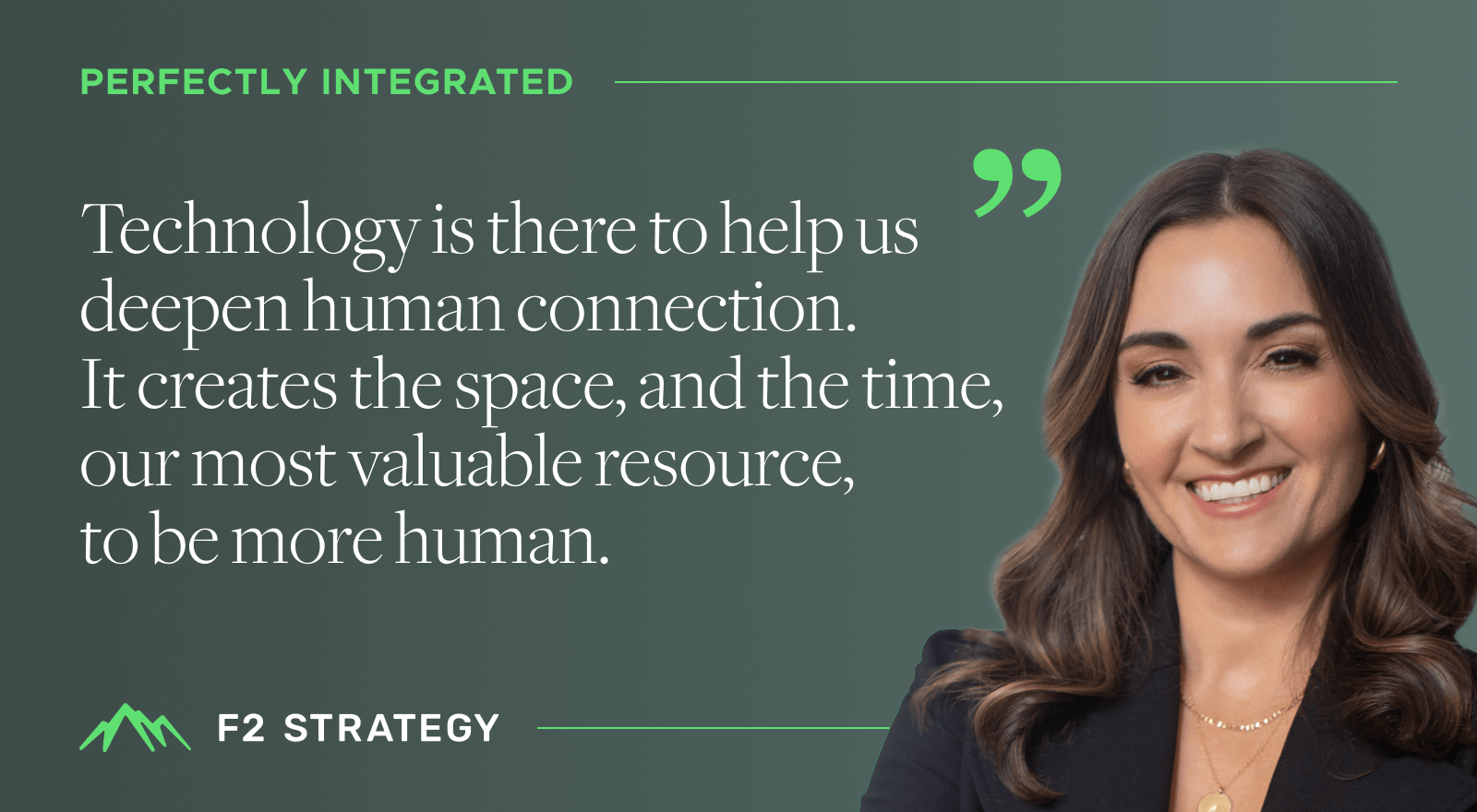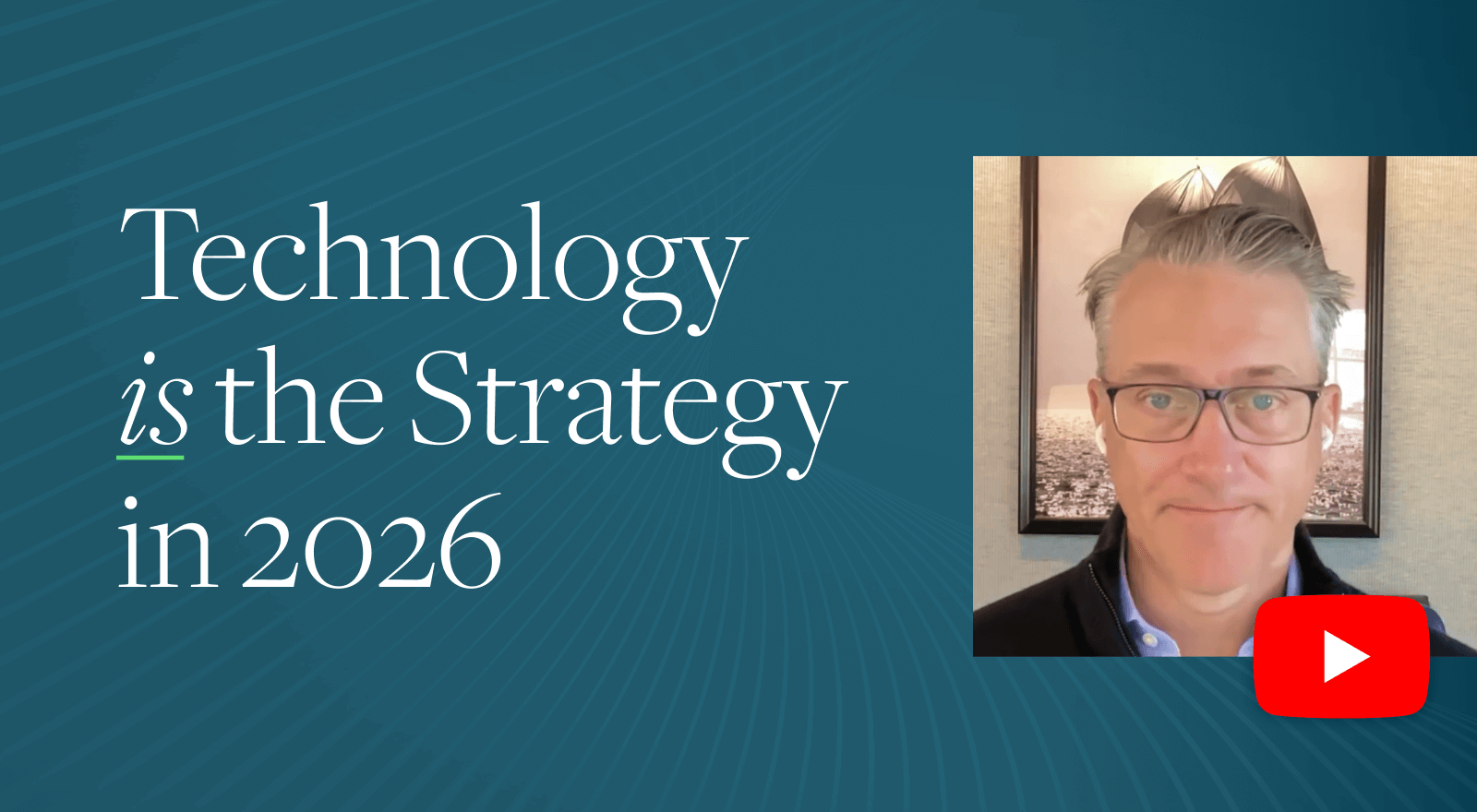F2 Strategy’s Executives in Residence bring years of high-level experience to our clients, offering unique perspectives and powerful insights that wealth management firms can use to make critical decisions. Our “What I’ve Seen” series provides an outlet for executives to share their insights in three categories: driving change, marketing and sales, or customer-centric businesses.
In this piece, Kabir speaks to driving change: moving from implementing individual AI solutions to taking a comprehensive approach that addresses core business challenges and reshapes the business.

AI Adoption in Wealth Management
AI continues to be a major focus across wealth management, with new solutions emerging almost daily. As with many evolving technologies, most firms are starting out by implementing point solutions to achieve incremental efficiencies.
The bigger question continues to be: how can firms extract significant, transformative benefits from AI?
Based on my involvement in the wealth tech space, I’m fortunate to have an inside view of AI’s possibilities. From this vantage point, it’s clear that AI will do much more for our industry over time, but we’re still in the early stages of its development. In order to unlock its full potential, firms need to adopt a broader lens and reimagine their entire business, not just individual processes.
Identify and Examine Core Business Problems
Wealth management is highly customized. Every firm has its own tech stack, and the number of AI tools that could support small use cases multiplies each month. It’s unrealistic (and expensive) to try to vet each new tool for organizational impact.
Instead, firms should look inward to identify the big problems—areas where AI could fundamentally change the way the business operates. This requires deep analysis of current processes and the infrastructure needed to support AI effectively.
For example, a slow, fragmented onboarding process cannot simply be “fixed” by adding AI. Firms need to ask: Do we have an integrated data layer? Is the data usable, accurate, and labeled for modeling? Only by addressing these foundational requirements can AI solutions deliver meaningful improvements.
Plan for Emerging Roles
AI adoption is creating new roles that didn’t exist even six months ago—from Analytics Officers to Chief Data Officers to AI Heads. These roles require expertise in data modeling, integration, and AI architecture. Firms must plan now: will they develop this expertise in-house, or outsource it? Or will they become more creative about the way they partner with third parties?
Over time, AI experts will not only sit in a centralized group—they will be embedded across functions like marketing, financial planning, and client service, helping to harness AI capabilities in specific roles.
Humans Remain Essential
Wealth management operates in a highly regulated environment. Accuracy in client communications is critical, and oversight is required to maintain it. For the foreseeable future, humans will continue to play a key role in overseeing AI-driven processes—even as AI reduces the need for manual work in some areas.
AI’s Broader Impact on the Industry
AI’s potential goes beyond individual firms—it can address some of the most fundamental challenges in wealth management.
- Addressing the Advisor Shortage: While the wealth management market continues to grow, the industry faces an advisor shortage projected by 2034. AI and advanced technology can help firms serve more clients efficiently.
- Expanding Access to Investment Solutions: Many people currently lack access to scalable financial advice. AI can enable highly personalized, scalable solutions, especially for the mass affluent or individuals with limited savings who still need financial guidance.
- Redefining Robo-Advising: Traditional robo-advisors are not truly personalized. AI opens the door to highly tailored investment strategies, transforming the way individuals can invest through automated systems.
One Size Won’t Fit All
Smaller firms will adopt AI differently than larger firms, investing in different tools and strategies. That’s expected. However, the foundational principles—identifying core problems, building the right infrastructure, planning for new roles, and embedding oversight—remain the same. When the industry collectively focuses on solutions that have real impact, we’ll see the next level of maturity emerge.
AI is still in its early stages in wealth management, but its potential is enormous. Firms that move beyond piecemeal solutions to a strategic, enterprise-wide approach will define the future of the industry.
Contact us to learn more about how we help wealth management firms implement AI strategically.
.jpg)

.png)


